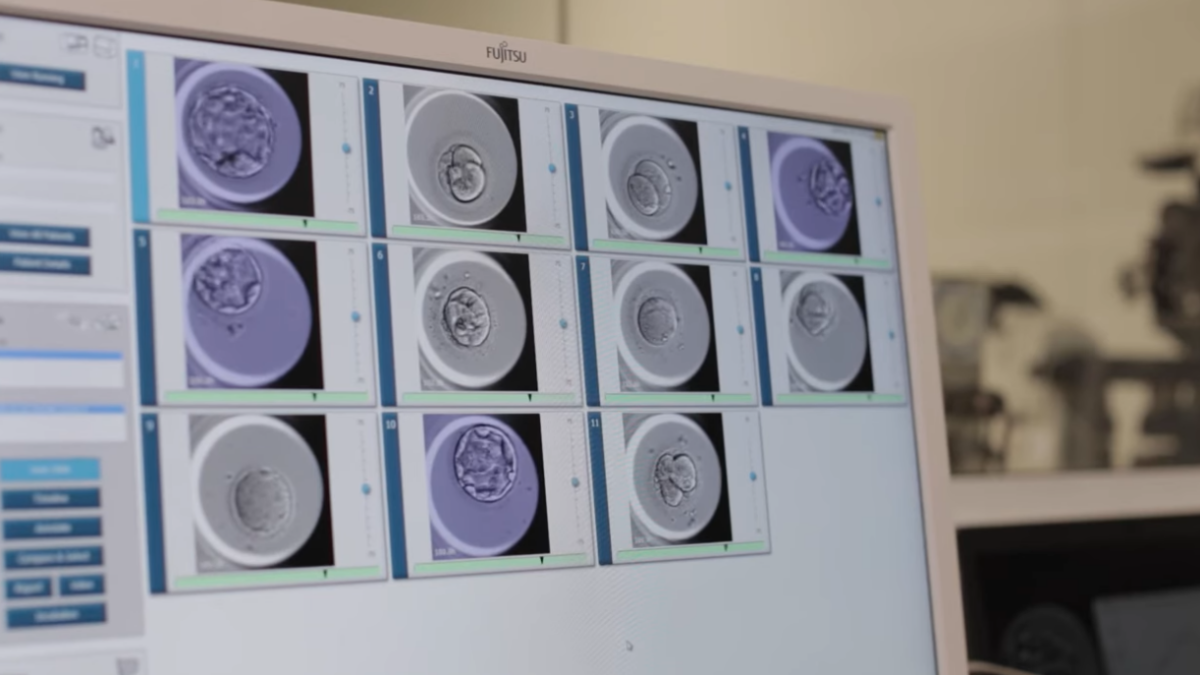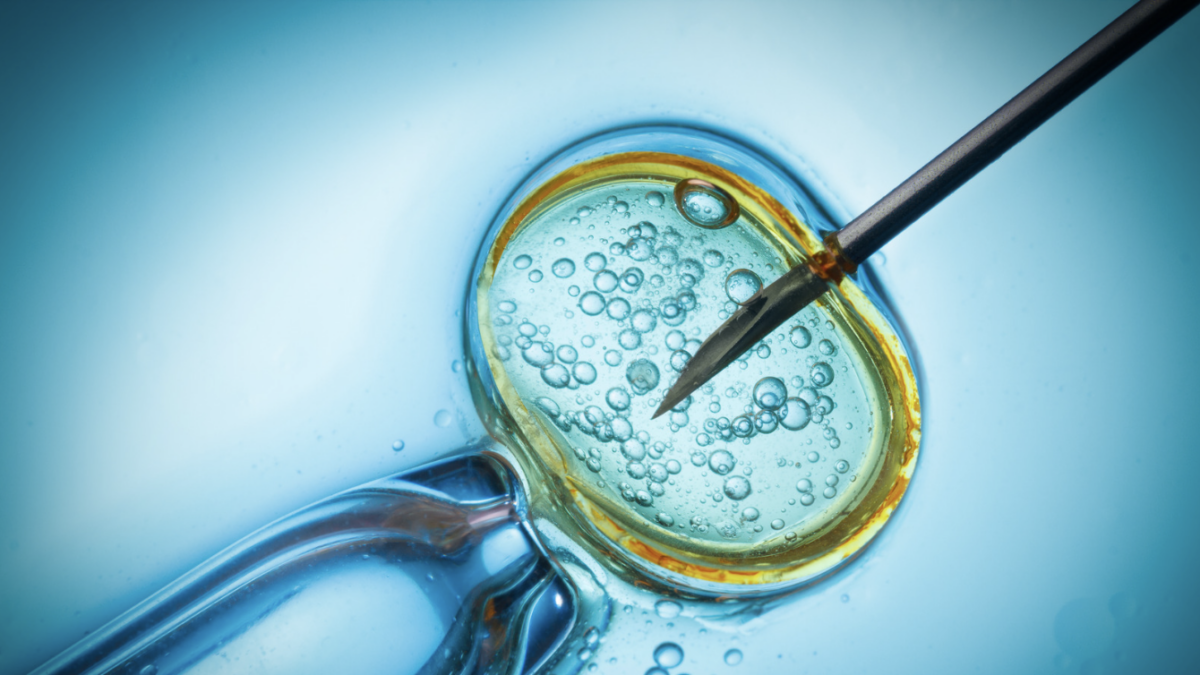
When I was in my early teens, I thought there would be no greater career than that which was depicted on “CSI: Miami.” You’d get to wear a suit without a tie, wander around southern Florida every day, shoot a ruthless drug lord or two, then stare moodily into Biscayne Bay for 20 minutes before punching the clock and heading home. To me, that seemed like the American Dream. What most excited me was the super-cool lab work on which the cop and scientist heroes were constantly relying: crazy centrifuges, high-tech computer programs that could piece together fingerprint fragments, weird radio-wave devices that could somehow figure out who fired a particular bullet from the rooftop of the Ecuadorian Consulate. The lab—that’s what really drew me. That stuff looked like so much fun.
I grew out of that when, like most kids eventually did, I figured it wasn’t all as exciting as it was cracked up to be: science work, like being a cop, is not really like it’s depicted on television. Real science is largely boring to most people, and only a relatively small percentage of the population can actually sustain the level of interest and dedication necessary to work in a scientific field. When I was a kid in homeschool, I used to love going to the Science Museum of Virginia, a massive museum converted from the old Broad Street train station near downtown Richmond. It was so neat because the museum was full of buttons you could push and little doohickeys you could move around. It was like a big toy store. To make “science” fun, you usually have to dumb it down; real science isn’t quite exciting enough for mass consumption.
That’s why it’s so entertaining to watch liberals trot out the whole “science” gambit every time they need a quick anti-conservative talking point. If you’ve ever been yelled at by a liberal for being “anti-science” because you disagreed with key liberal policies, then you’ll know how zealous modern liberalism is on the subject of “science,” which it defines as anything that agrees with key liberal policies.
Note the Hypocrisy Inherent to the System
It’s a great cudgel but, on closer inspection, it’s usually just nonsense. Few of these folks are actual scientists themselves, or anything even resembling scientists (a master’s degree in women’s studies doesn’t count). Science is increasingly just a catch-all word for liberals, a concept that serves as a stand-in for actual debate, with the predictable result that they end up looking like complete fools. Take the Rachel Maddow Show’s Steve Benen:
For supporters of modern science, the prevailing political winds have to be discouraging. For example, congressional Republicans not only reject climate science en masse, but each of the incoming GOP senators are climate deniers.
Here we have a crystalline example of the liberal belief that tossing “science” into an argument makes it automatically legitimate and ultra-smart. What on Earth is a “supporter of modern science?” Is there a 501(c)3 organization run by an entity known as “Science,” to which its “supporters” can donate? How does one “support” an observational and experimental mode of inquiry like science? And what do the “prevailing political winds” have to do with it? Are Republicans going to somehow outlaw the scientific method? Finally, what is a “climate denier?” How can someone “deny” climate? Does this dimwitted phrase actually mean anything, or is it just shorthand for folks who disagree with a government-mandated 100 percent reduction in fossil fuels over the next decade?
Remember, Guys, Science Requires Competing Theories
Indeed, the most we can draw from Steve Benen’s opinions on science is that a “supporter of modern science” is actually a “supporter of modern progressive policies.” I guess if you’re a partisan hack who is bent on pushing a liberal environmentalist agenda, you can get away with such a sloppy and untenable use of the term. If, however, you are a fellow who has labeled himself “the Science Guy,” you should probably be a little more delicate in mixing politics with “science,” as Bill Nye wasn’t during a recent appearance on CBS in which he claimed that religion should be “completely separate from science:”
It’s not a coincidence that the creationists also deny climate change. It’s a really important thing.
This is a familiar line used by the climate change crowd: that “climate deniers” are the modern-day equivalent of the Neanderthals that passed and defended Tennessee’s anti-evolution-teaching Butler Act. Anti-evolutionists were wrong to argue against one of the key scientific discoveries of all time, ergo anti-global-warmists must also be wrong for disagreeing on such a contentious issue. This is a nasty, dishonest, shallow argument—and it is also completely misguided. Creationists, after all, base their beliefs strictly in religion, specifically religious text. There is nothing at all wrong with this, but creationism makes its ultimate appeal not to “science” but to the Bible alone.
“Climate denial,” on the other hand, is not a religiously-inspired philosophy: there are a great many competing scientific opinions and theories on climate change, all of them firmly grounded in the realm of scientific inquiry. Climate models are frequently wrong, and there are literally dozens of explanations for climate change pause. Climate science is still fraught with doubt and perfectly worthy of skepticism and rigorous questioning. You don’t need to be a fundamentalist Christian, in other words, to question the science of, and the policy solutions to, climate change—and furthermore, asking such questions does not make you a fundamentalist Christian evolution denier. Relax, Bill Nye.
Shocker: Conservatives Are Conservative
Nevertheless, although it makes them look dumb, the slander of “anti-science” or “science denial” is intensely popular throughout the mainstream media. At the Washington Post, Chris Mooney recently posted a series of charts that purport to show that (get ready for it) the more religious you are, the more likely you are to agree with traditional conservative beliefs. The correlation between religious belief and creationist belief is quite strong—no surprises there—but opposition to federal funding of stem cell research was somewhat less correlated with one’s religious convictions, and the correlation between religion and climate change skepticism was altogether unconvincing. Here’s Mooney’s conclusion:
What this exercise underscores, most of all, is that when people deny science, they do it because they think it conflicts with their personal identity. But many elements go into each of our identities, with both politics and religion constituting vital components for many people.
In light of this, it really doesn’t make much sense to assert the power of one over the other.
“When people deny science.” All right. So apparently opposition to “federal funding for embryonic stem cell research” (the study’s words, not mine) constitutes “denying science.” In the liberal worldview, even being against funding something is considered anti-scientific. (It’s also worth pointing out that embryonic stem cell research has not even deliveredthe promised medical breakthroughs, and that embryonic stem cells are becoming more and more obsolete as time goes by. So this revelatory anti-science study is hyper-fixated on a medical procedure that is becoming largely outdated, and apparently the study didn’t bother to ask respondents how they felt about the more recent non-embryonic stem cell research. How scientific!)
Climate change skepticism is also conflated with “denying science,” simply because climate change skepticism conflicts with the liberal worldview. Even the headline affirms this silly exercise in aggressive confirmation bias: “These charts finally explain where science denial comes from.” No, they don’t do anything of the sort—the charts simply show that liberals and conservatives often have different political, social, and theological opinions based in part on their religious beliefs (or lack thereof). The Washington Post can’t find better headline writers?
For progressivism, “science” has become a safety blanket in which its adherents can swaddle themselves to avoid confronting alternative beliefs. It is a refuge from having to think too critically, either about your opponent’s political convictions or the gaping holes in your own. Science—the discipline based on rigorous testing, exhaustive research, and empirical evidence—has given us a great many wonderful things: good medicine, space exploration, protection from diseases, the commonplace but wonderful things one finds in the “first aid” aisle at any pharmacy. It has also given an easy escape hatch from modern liberalism, an ideology awash in its own greatness and assured of being correct about everything because it listens to Bill Nye prattle on about those big bad creationist nutjobs. There is no science to be found within this ideology, only preening narcissism and public self-aggrandizement. It would be best for everyone involved if liberals took their shallow scientific fetish to the kiddie science museum, and left it there.









